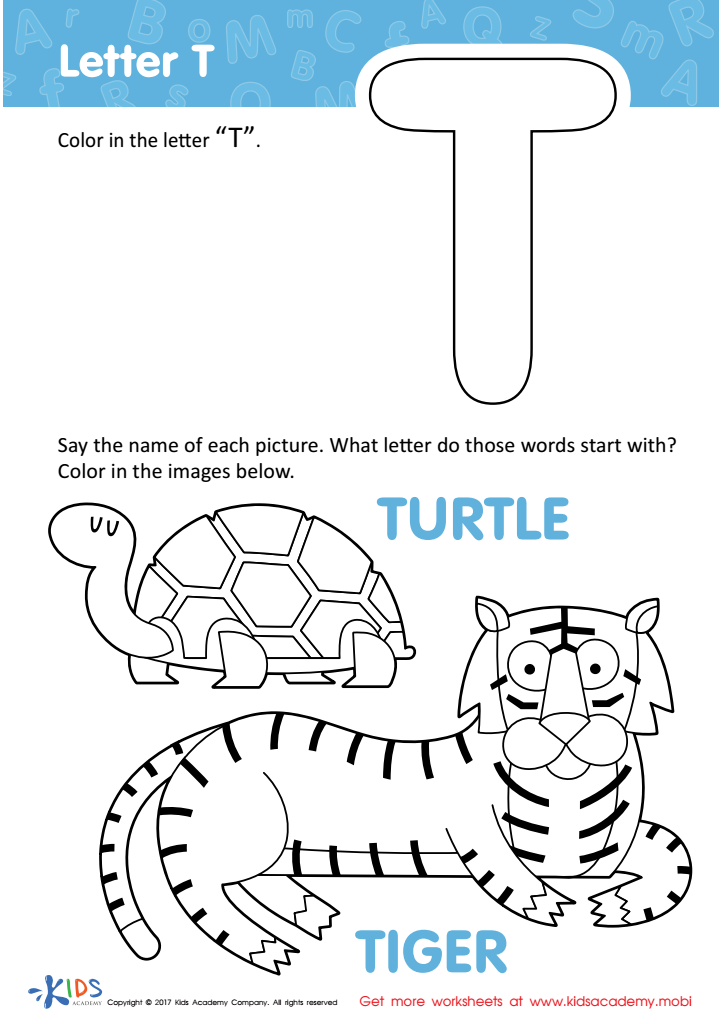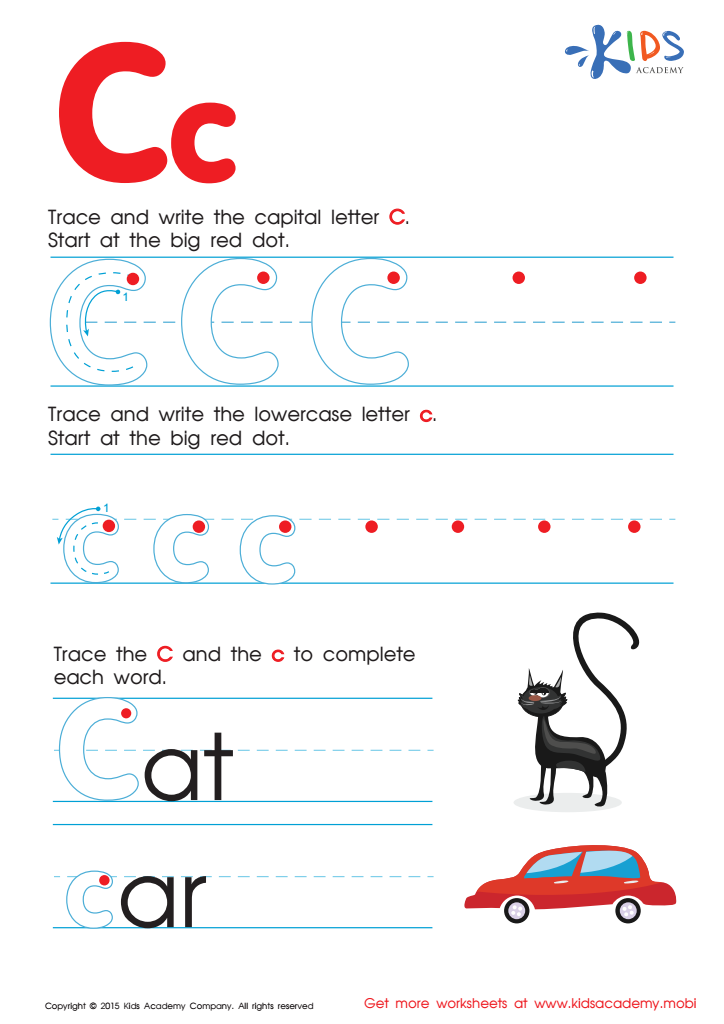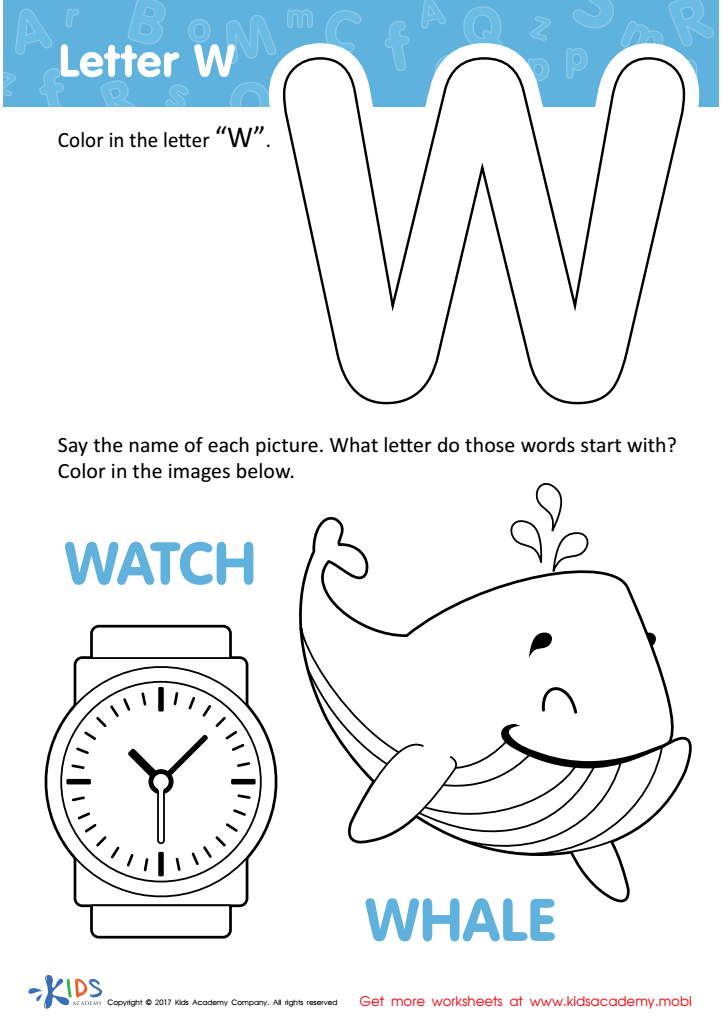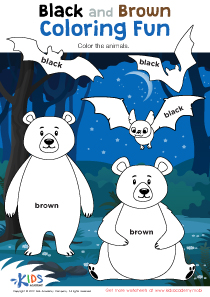Letter tracing skills English for Beginners Worksheets for Ages 3-5
3 filtered results
-
From - To
Enhance your child's literacy journey with our "Letter Tracing Skills" worksheets designed specifically for beginners aged 3-5. These engaging, interactive resources help young learners practice their letter formation in a fun and educational way. Through tracing exercises, children develop fine motor skills while gaining confidence in recognizing and writing both uppercase and lowercase letters. Our worksheets also encourage visual recognition and enhance their understanding of the English language. Perfect for educational settings or at-home learning, these printable worksheets provide a solid foundation for early writing skills. Start your child's adventure in learning English with these beautifully crafted tracing activities!


Letter T Coloring Sheet


Letter C Tracing Page


Letter W Coloring Sheet
Letter tracing skills are crucial for young learners aged 3 to 5, as they lay the foundation for literacy and cognitive development. This stage is a pivotal time for brain development, making it an ideal period for preschoolers to enhance their fine motor skills through engaging activities like letter tracing. These skills not only help kids grasp the shapes and forms of letters but also foster hand-eye coordination and muscle memory.
Parents and teachers play a vital role in nurturing these abilities, as early exposure to letters can spark a child's interest in reading and writing. Additionally, letter tracing can enhance a child’s understanding of phonetics and help them connect sounds with corresponding letters, setting a solid base for future language skills.
Moreover, incorporating letter tracing into daily activities promotes a love for learning and builds a sense of accomplishment. The act of mastering letter forms and creating words not only boosts confidence but also encourages creativity. As children engage in tracing, they develop concentration and focus, both of which are essential for their overall academic success. In short, prioritizing letter tracing is an investment in a child’s educational journey that reaps benefits well beyond preschool.
 Assign to My Students
Assign to My Students

















